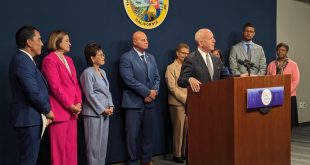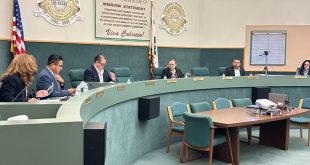
Washington, DC (April 25, 2017)—Today, Congressman Juan Vargas (CA-51) will introduce the Donald J. Trump Wealth Tax Act of 2017, a tax plan proposed by Donald Trump in 1999 to impose a net worth tax of 14.25 percent on all individuals and trusts with a net worth of $10,000,000 or more in an effort to significantly reduce the national debt.
In 1999, then-Presidential Candidate Donald J. Trump announced a wealth tax plan to eliminate the national debt in its entirety. His plan imposed a net worth tax of 14.25% on all individuals and trusts with a net worth of $10,000,000 or more.
 “President Trump was serious when he proposed this wealth tax almost 20 years ago,” said Congressman Vargas. “In the spirit of bipartisanship, I am introducing the Donald J. Trump Wealth Tax Act of 2017 to allow the President to follow through on his original idea.”
“President Trump was serious when he proposed this wealth tax almost 20 years ago,” said Congressman Vargas. “In the spirit of bipartisanship, I am introducing the Donald J. Trump Wealth Tax Act of 2017 to allow the President to follow through on his original idea.”
At the time, during an appearance on Good Morning America, Trump said, ‘‘If I were president, it would be passed. I think if somebody else is president, it probably can’t be…This is a tax paid by 1 percent, but the 1 percent will be very big beneficiaries with what’s going to happen and the positive forces that would take place in the economy.’’
If the Donald J. Trump Wealth Tax raises the $5.7 trillion that President Trump expected it would in 1999, it would cover all current and future obligations incurred by the Global War on Terror and reduce the debt to GDP ratio from 77 percent to 46 percent.
“If President Trump is committed to reducing our national debt and staying true to his original tax proposal, then I will work with him to ensure that his wealth tax becomes law for the future and economic well-being of our country,” Congressman Vargas said.
Vargas represents California’s 51st Congressional District which includes the southern portion of San Diego County, all of Imperial County and California’s entire US/Mexico border. Vargas was first elected to the U.S. House of Representatives in 2012 and is currently serving his third term in Congress. He serves on the House Financial Services Committee.





